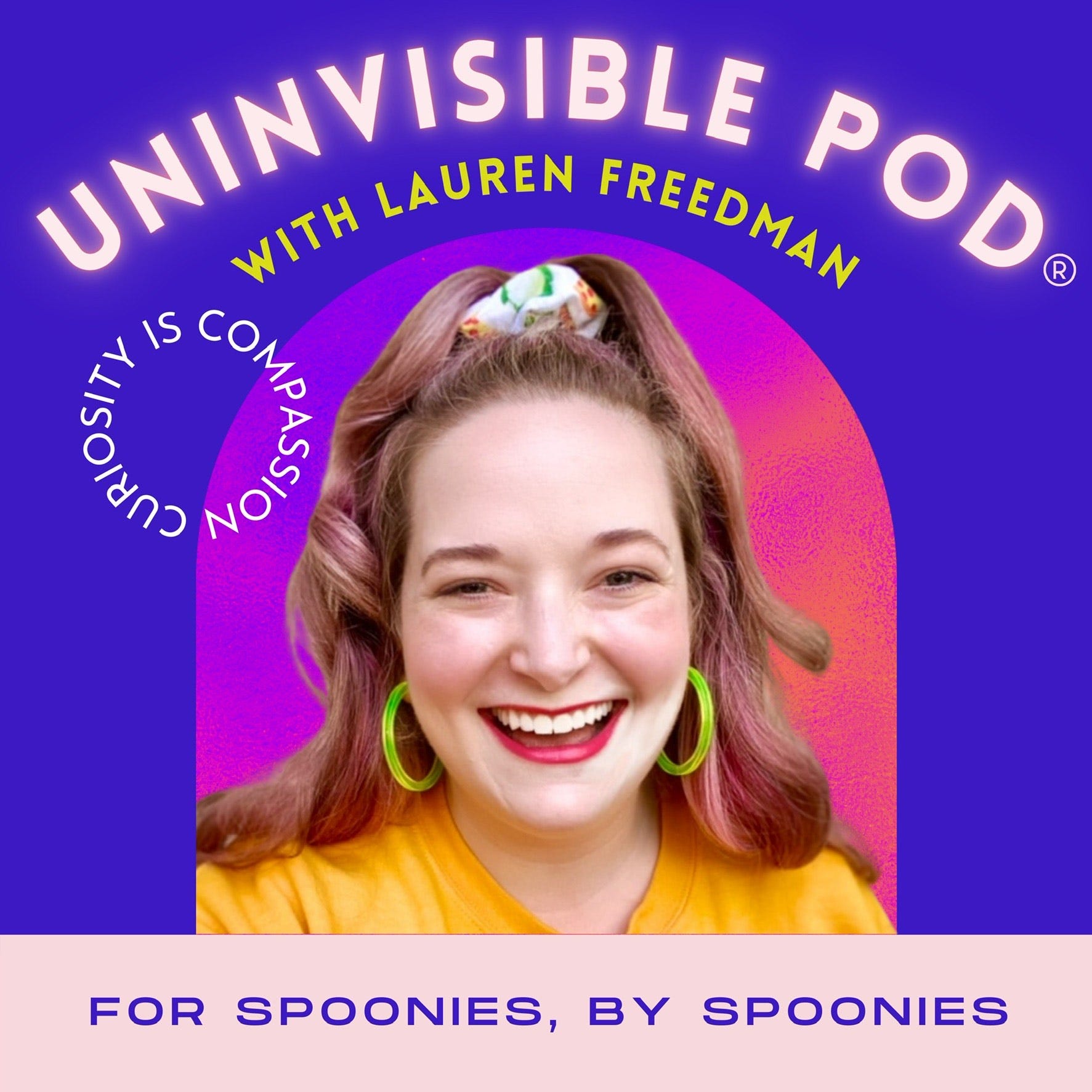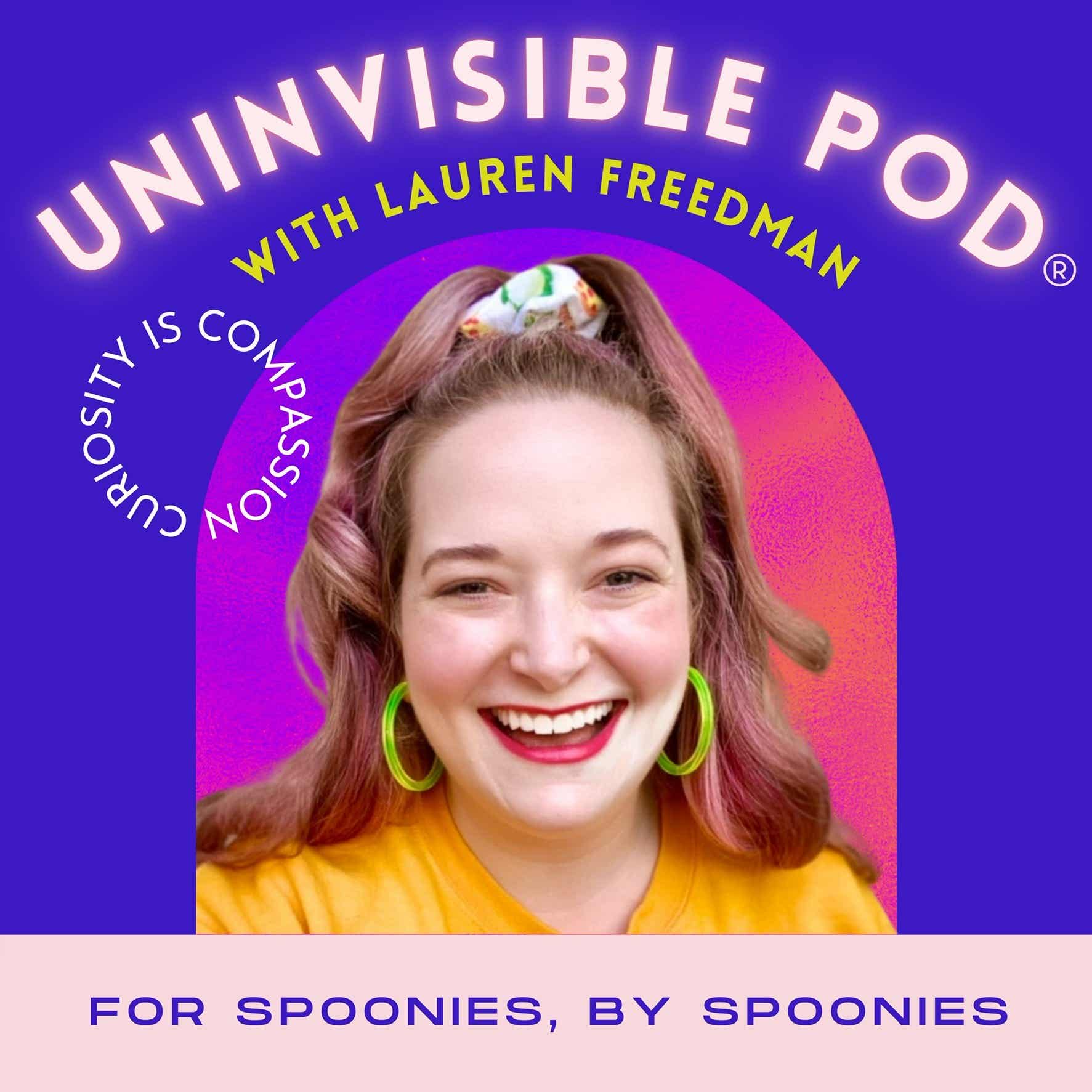
036: Sweet Apricity Founder Tonya Butts on Pain, Pleasure, and Surviving Toxic Mold

Uninvisible Pod with Lauren Freedman
Shownotes Transcript
Tonya Butts is the founder of Sweet Apricity, a sweets company that makes elimination-diet-compliant caramels (and caramel sauce!), marshmallows, and more. The company started on a whim: Tonya began crafting her dairy-free caramels as a graduation gift for her best friend Wendy, who manages debilitating symptoms with the Autoimmune Protocol (AIP). While offering powerful relief for those with autoimmune disease, AIP also eliminates a number of ingredients that limit indulgence (read: sweet!) options. Tonya knew what most of us who have tried a strict diet understand: sometimes the greatest gift is a sweet treat that won’t wreck our progress. Sweet Apricity’s Caramels, Marshmallows, and Caramel Sauce offer a sweet reward for all the work it takes to heal. They are grain-free, dairy-free, and refined sugar-free, made only with simple ingredients allowed on the AIP and Paleo diets. Still locally crafted by hand in Portland, Oregon, Sweet Apricity remains true to its roots with real ingredients, small batch production, and a growing line of artisan offerings. From the beginning, the mission of Sweet Apricity has been to offer a treat made with ingredients our bodies will love. In the course of start-up and as the company has grown, Tonya has discovered a shocking truth: that she’s been living with toxic mold symptoms for years. In her “coming out”, she tells Lauren about transitioning from “well” to “sick”, how this has affected her identity and her work-life balance, and how grateful she is to be connected to the caring community of Spoonies (and their loved ones) that Sweet Apricity has brought into her life.
**Join us as Tonya shares… **
that when she first brought the caramels to her friend Wendy, Wendy’s response was one of total shock and joy – she screamed with delight and immediately began to sob with relief
the meaning behind Sweet Apricity’s name
why Tonya does what she does: that she wants to serve “a feeling that is elusive to people following a restrictive diet”
that while her friend’s restrictive diet was never a roadblock in their friendship, Tonya became very protective of Wendy’s health and of others’ judgment
that she lives with PCOS and has had her gallbladder removed
that she experienced a lack of follow-up care with regard to both her gallbladder removal and the use of birth control for her PCOS
that she unknowingly moved into a moldy house in the PNW, where she lived for 5 years
that it’s not necessarily realistic to remove oneself immediately from a moldy home – because of the cost of living and the remediation process
that she went on AIP for 14 months to experience what life was like for Wendy – but also because of its healing properties
that she gained a lot of weight because of her mold experience
that she couldn’t even begin to treat her mold toxicity until she left her old home
that she is treating her toxic mold infections with a functional medicine doctor – whom she travels to Seattle to visit
that the doctors she sees in Seattle are two of the first to have been trained by Dr. Klinghardt (known for work in Lyme), and utilize ART (autonomic response therapy) to treat her mold toxicity
that she also struggles with heavy metal toxicity
that she’s been very good at hiding her symptoms
that in order to balance work and life, she’s surrounded by colleagues who know her well and want to see her succeed – so she’s able to create accommodations for her chronic illness
the irony that someone can spend exorbitant amounts of money for a meal that isn’t safe for them – and the realization that often, eating out/eating while traveling will make her feel unsafe in her body
that she has experimented with veganism, paleo, keto, and intermittent fasting over the years
that diet change is rarely easy – and the key to success is mindset
that she’s an emotional eater – and that’s OK
that chronic illness can lend itself to a disordered relationship to food and eating
that her biggest struggle right now is with cognitive function – between mold, heavy metal toxicity, and hormone dysfunction
that she recently stumbled upon the book Radical Metabolism, which she has found to be very useful
that she gets ghost migraines – which affect her vision – when she experiences inflammation
that she makes a conscious effort to hide her impairments – and she realizes she is often not having the kindest internal dialogue with herself
that she questions – and sometimes doubts the existence – of her chronic illnesses, because they’re invisible, and she is sometimes able to hide them
how often Wendy was dismissed by doctors, who tried to tell her the symptoms were all in her head
that dairy wreaks havoc on her mental health – so she has to be very careful when she consumes it
that she’s been able to reintroduce corn, but she’s unable to consume tapioca
one of her favorite indulgences: ‘smores made with her marshmallows and caramels This is a public episode. If you would like to discuss this with other subscribers or get access to bonus episodes, visit uninvisiblepod.substack.com)